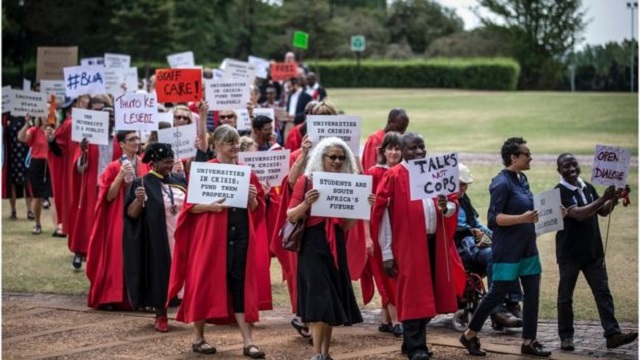
Efforts to "decolonise" education need to be dealt with now that students have raised the issue, an academic said on Thursday.
"Unfortunately we have been reactionary. The agenda to decolonise our education is something that has always been there," Mpumelelo Ncube, a lecturer at the department of social work at the University of Johannesburg said at a conference.
"Now that the students have raised it, it's something we need to put on the table and deal with directly."
Academics from South African institutions and visiting US academics were at the University of the Witwatersrand to debate decolonising education, after the Fees Must Fall movement raised the issue.
Professor Rajendra Chetty, of the Cape Peninsula University of Technology, said decolonising education meant moving out of the "colonial mode" in why and how things were done in the academic spaces.
"The danger is that we're replicating apartheid and there is a need for new, critical thinking," he said.
Ncube said academics were starting to show interest in pursuing a decolonised curriculum.
"Whether the academics are up to the task is something we really need to look at, but there is definitely a will for us to move towards that direction."
Professor Kasturi Behari-Leak, of the University of Cape Town, said decolonisation was an abstract concept that needed to be discussed.
"What is decolonisation and has its definition changed?" Behari-Leak asked.
Wits said the symposium was part of attempts to accelerate the university's transformation plan. Departments, schools, and faculties were encouraged to take part in transforming the curriculum, spokesperson Shirona Patel said.
"It is through engagement and interaction that we can work together toward enabling a transformed, successful society for all," she said.
